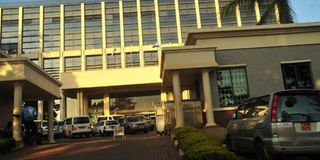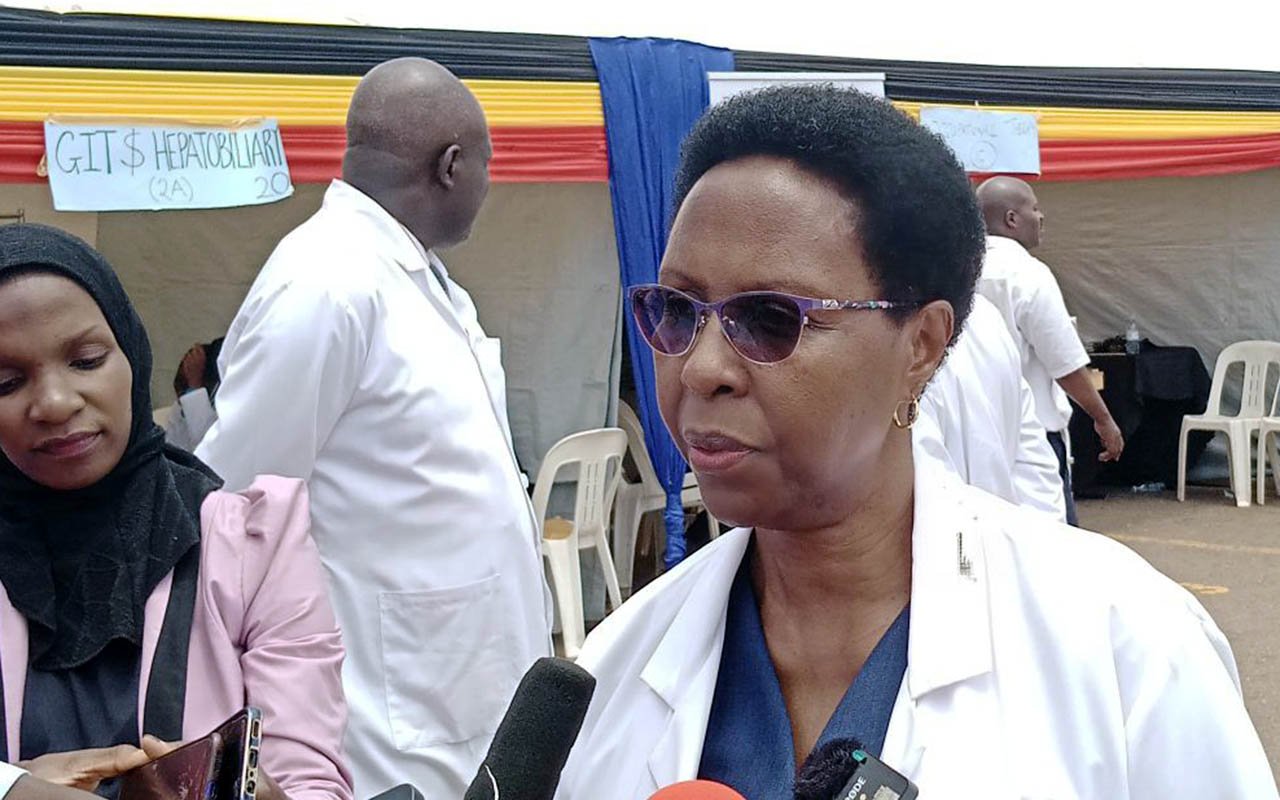CNOOC: Staff complain of mistreatment, poor pay

CNOOC head offices on John Babiiha Avenue [formerly Acacia Avenue]. Some staff members claim CNOOC mistreats them. PHOTO BY s. wandera.
What you need to know:
In two separate documents Ugandan staff members accuse CNOOC of mistreatment, low pay and importing expatriates to do work, which can be done by natives.
KAMPALA
Ugandan staff at China National Offshore Oil Company (CNOOC) have complained about what they call ‘mistreatment and suppression.’
The complaints are contained in two dossiers staff sent to senior managers at the company, copies of which this newspaper has seen. In one of the dossiers, sent last year, local staff accuse the John Babiiha Avenue [formerly Acacia Avenue]-based company of nepotism, low pay [given to local staff].
They also accuse the company of frustrating career growth of some Ugandan professionals. The employees, referring to themselves as ‘CNOOC whistleblowers”, further accuse the company of double standards ‘yet it sends out a picture of equality and good working relations’.
“By the time I write these issues, a lot is being done to Ugandan staff without any hope that things will become better,” the first dossier titled mistreatment of Uganda employees by Chinese reads in part.
The CNOOC corporate affairs manager Chai Wei, said the contract conditions for Ugandan staff are in line with market-based structures which the company believes is the most suitable and prevalent pay structure in use today.
“Variation in structures are based on critical work force segments, geography and job function, which is critical in the industry because we need to attract and retain critical talent with a lesser focus on cost and judicious spending of organisational funds,” Ms Wei wrote in an email exchange.
In the second document, sent last week by 18 staff members, the complainants raise issues similar to those in the first document but also add lack of salary structure and suppression of staff’s freedom to speak out.
“Staff ideas are always suppressed and this should stop. It is this suppression that could have led this information to be leaked to the public,” the document reads in part.
“Behind the scenes, staffs remain antagonised and if the suppression continues, more company secrets may come out,” reads the dossier.
However, Ms Wei said salaries and welfare at the company reflects the results of fair, private and in- advance dialogue between CNOOC Uganda as an organisation and the employee themselves.
“It’s important to add, however, that the company has a policy to conduct annual appraisals, which go a long way to provide a mechanism for more dialogue in which to discuss staff essentials including remuneration,” she said.
However, the employees say the salary reviews are, “too small, below inflation and as such do not address anything.” The employees further say they are denied leave, paid so little “yet expatriates take their leave days as and when they want.”
Other accusations include importing in expatriates to do work that would be done by Ugandans, forcing Ugandan staffs to sign contracts that are not negotiated and hastily dismissals of Ugandan staff over ‘trivialities’ without being heard.
“Some of the ‘expatriates’ do things as basic as administration and human resource. One is left to wonder if HR or admin in oil and gas has anything technical or unique that Ugandans can’t do,” reads one of the dossiers in part.
“Whilst it’s understandable to have expatriates in technical areas like drilling as we still lack the expertise, it shouldn’t happen for non-technical areas,” the dossier adds.
Ms Wei, however, said the accusations are unfair, adding: “It’s our submission therefore that we believe the sentiments portrayed in the letter are unfair on the part of the author to the rest of staff because we believe we have established internal dialogue platforms including grievance handling procedures that should help any dissatisfaction be addressed internally,” she said.
“We would like to take this as feedback and trust that we can use this to better our systems internally and work hard to meet our employees’ expectations,” she added.
When asked about the situation in CNOOC, Mr Fred Kabanda, the head of the regulatory unit for petroleum exploration and production, said the department has interest in how the oil companies employ because “any employment that is made by these companies must relate to an agreed work plan.”
In order to strike a balance between the expatriates and the local staff, he said, we must be able to regulate how many expatriates come in because the kind of knowledge and experience in this industry is kind of scarce among our local staff.
“There is no expatriate that comes here without going through that process apart from the general managers because the companies would really want them to be from their countries,” he said.
Mr Kabanda also explained that the department has a nationalisation plan that compels companies to justify the use of expatriates.



